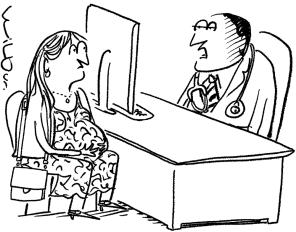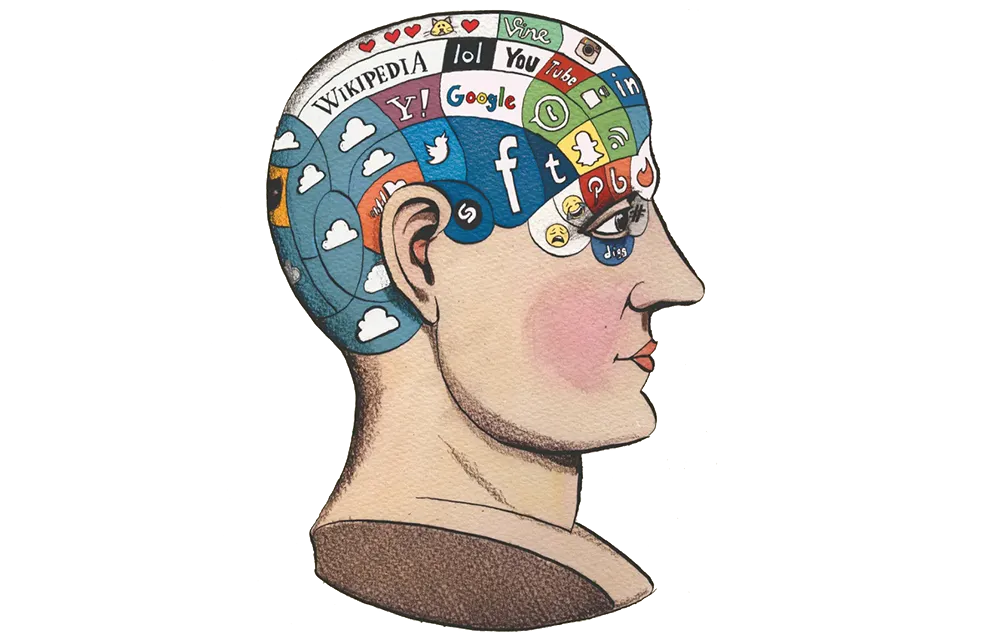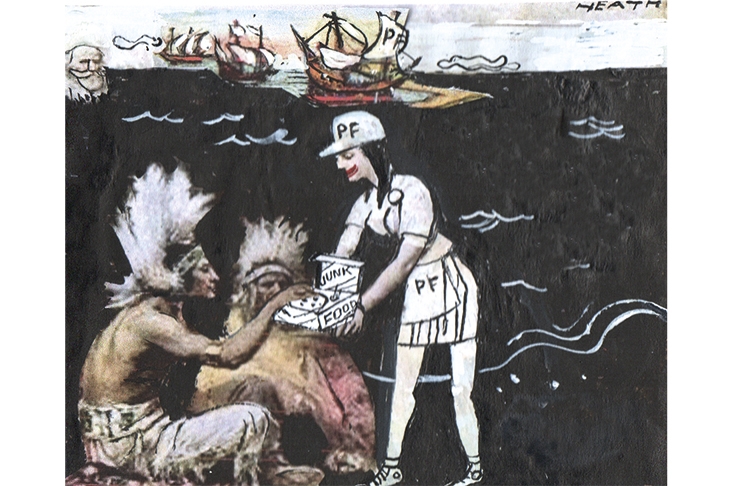
I admit that when Donald Trump announced he had found the answer for autism, I was curious. As an autistic person, I was hoping that whatever medieval quackery he came out with would require us to do something fun, like carry a hedgehog at all times or take heroic quantities of cocaine, both of which would certainly make the world more interesting for those of us who struggle with social cues.
Leading the hunt for this miracle cure has been US Health Secretary Robert F. Kennedy Jnr, a man whose grip on reality has softened since a worm quite literally ate part of his brain. You’ve got to wonder if the worm isn’t still up there running the show on behalf of wormkind, given RFK Jnr’s kooky ideas about vaccines that prevent actual diseases such as – let’s see – measles, mumps, meningitis, hepatitis, polio, typhoid, tuberculosis, rabies, yellow fever, smallpox and, yes, Covid.
It was something of a letdown when this week the White House declared that the ‘cause’ of autism is women who take painkillers in pregnancy. This is not just untrue, it’s unoriginal – another ugly chapter in the dull, sexist history of scapegoating mothers for somehow making their children autistic. It started in the 1930s, when researchers noticed that the mothers of these strange little boys were often rather rude and concluded that they must have broken their children by not loving them enough. The ‘refrigerator mother’ theory hung around causing heartbreak until at least the 1990s, because why put time and effort into helping disabled people lead happier lives when you can just blame women? We now know that the reason these women came across as rude was probably because many were autistic themselves. Because the one thing we do know about the cause of autism is that the condition seems to be largely genetic.
It would be newsworthy, at this point, if the Trump regime were to release medically sound advice, given that the White House is overrun by clowns who appear to regard peer-reviewed science as a personal insult. But – speaking of personal insults – while what remains of the free press is patiently pointing out that no, paracetamol does not cause autism, I find it more alarming that nobody is questioning the basic premise that autism needs to be eliminated. Meanwhile, millions of neurodivergent people just had to watch the President of the United States get up on stage and effectively promise to rid the world of people like us.
In the 1930s, eugenicists studied autistic people in order to find ways of eliminating us from the gene pool. The Nazi solution to the persistent problem of people who struggle with sensory issues and find the world loud and overwhelming was, well, exactly what you probably imagine it was. But the mania for stamping out autism has never gone out of vogue.
I’m glad there isn’t a cure, because there have been times in my life when I’d have been tempted to take it
Trump is not the first American president to promise to find the answer for autism, but he’s the first to claim to have actually found it. It’s no accident that today’s backlash against autism acceptance is coming from the brutalist right, who are as happy to exploit struggling parents and witless conspiracy theorists as they are to capitalise on public panic about the rise in autism diagnoses – which, depending on who you ask, is a woke social contagion, a horrifying epidemic, or both.
But we know why autism diagnoses are rising – and it’s nothing to do with painkillers, or vaccines, or heavy metal poisoning. Diagnoses are rising for three reasons. Firstly, because there’s more awareness and understanding of the condition. Secondly, the medical establishment has been playing catch-up after belatedly realising that, yes, women and girls can be autistic too. And lastly, in 2013 the official definition was expanded to include people who would previously have been diagnosed with, for example, Asperger’s. Recent research has shown that the number of people with autistic traits has remained fairly consistent. Autism is not a disease. It is not a failure in human functioning. It is a cognitive difference that is also a disability, although how disabling it is depends as much on your circumstances as it does on your symptoms.

The major issues that autistic people face, in childhood and in adulthood, are stigma, violence and exclusion. The reason we have a lower life expectancy than neurotypical people is that autistic people are more likely to live with abuse, homelessness and neglect; more likely to die deaths of despair from substance abuse and suicide. We are, of course, less likely to be locked up for life, tortured with electric shocks or forcibly sterilised than we were a generation or two ago, but we still face a great deal of prejudice in education and employment and we are de-prioritised for lifesaving medical care.
And still the problem is apparently with us. Almost all the funding in autism research is funnelled towards finding a cure, rather than actually trying to help autistic people and their families live better lives. So far, the only reliable solution is to be so extraordinarily wealthy that everyone tolerates your eccentricities – although Elon Musk, the world’s most powerful autist, has demonstrated that no amount of fame and money is enough to stop people picking on you for being an odd duck.
I’m glad there isn’t a cure for autism, because there have been times in my life when I’d have been tempted to take it. Times when I’ve been so worn down by misunderstanding that I’d have given anything to be ‘normal’, just to see what it was like. But what will help autistic people and their loved ones isn’t a bogus cure. It’s tolerance, understanding and care. Unfortunately, these are unforgivably woke ideas now we’re down the trouser leg of time where you can get deported from several nations for daring to suggest that people try putting up with each other.
Authoritarians champion conformity and so conformity is back in fashion, as is the populist promise to make the world safe again by enforcing social norms with violence. For those of us who have spent our lives trying and failing to fit in, this is very bad news.








Comments